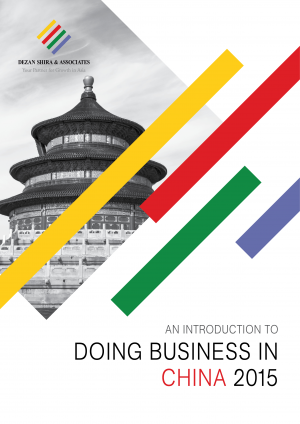China Outbound: Strengthened Regional Cooperation and Emerging Industries in ASEAN Countries
Our Latest Round-Up of Business News Affecting China-Based Businesses Investing in Asia
In this edition of China Outbound, we look into the recent development of India and ASEAN nations, their regional cooperation, as well as the improving trade ties between the UK and Vietnam. These also include the current economic relationship between India and ASEAN countries, which presents a multitude of industrial, commercial, and investment opportunities. From here, we move into new opportunities provided for investors seeking to invest in Asia’s emerging industries such as coffee and automobile industries. Lastly, we provide professional tax advice specific to foreign nationals working in India and ASEAN nations.
Vietnam in the UK’s Pivot to ASEAN
David Cameron has made the first trip to Vietnam of any serving UK Prime Minister, signaling a pivot of the UK towards the booming ASEAN region, in which Vietnam is forecast to sustain real GDP growth of over five percent per annum to 2030.
The visit comes following a successful first half of 2015 for UK companies, which have invested more capital into Vietnam than companies of any other EU member, making up 24.7 percent of new EU-origin registered capital so far this year.
Sign of a Deepening Relationship: Vietnam’s Communist Party Leader Visits the United States
In a historic meeting this week, the President of the United States met with Nguyen Phu Trong, the General Secretary of the Communist Party of Vietnam. This type of high-level meeting has not occurred since the two countries normalized relations 20 years ago. Both countries are eager to deepen their relationship, particularly as China continues to expand its power in the Asian region. A key part of this deepening relationship is the Trans-Pacific Partnership (TPP) trade deal, which involves twelve countries including Vietnam.
Why India and ASEAN Relations Are Set to Prosper
Bilateral trade between India and ASEAN totaled US$80 billion in 2014, up ten billion from 2012 and increasing by an average annual rate of 23 percent over the past decade. A large portion of India and ASEAN’s surging economic and political relationship can be accredited to two things: India’s “Act East” policy, which reaffirmed India’s plans to engage more substantially with the economies of its Southeast Asian neighbors; and rising business optimism within ASEAN, as outlined in the latest ASEAN Business Optimism Index by Dun & Bradstreet.
Grounds for Investment: Opportunities in Southeast Asia’s Coffee Industry
Southeast Asia has an ideal climate for coffee cultivation. While Vietnam has traditionally led the way for coffee production in ASEAN, other countries in the ten-nation bloc are steadily growing as coffee exporting nations. In particular, Indonesia, Laos and Thailand are markets that are both under-saturated and open to foreign investment. In this article, we provide an overview of the coffee industry in these countries.
Ford Sees Long-Term Opportunity in Vietnam’s Auto Industry
Vietnam’s healthy economic growth rate, growing consumer class, and ongoing infrastructure improvements have all helped drive Ford’s success in the country. Arias also cited Vietnam’s simplification and transparency of tax and customs procedures as key reasons for the company’s optimism about the future of its operations in the country.
Determining Tax Liability for Foreign Nationals Working in India
In general, foreign nationals working in India are liable for Indian income tax. They may also be liable for capital gains tax on disposal of capital assets in India. Whether an individual is liable to pay Indian income tax is dependent on the foreign national’s physical presence in India, regardless of citizenship or the purpose of the stay.
|
Asia Briefing Ltd. is a subsidiary of Dezan Shira & Associates. Dezan Shira is a specialist foreign direct investment practice, providing corporate establishment, business advisory, tax advisory and compliance, accounting, payroll, due diligence and financial review services to multinationals investing in China, Hong Kong, India, Vietnam, Singapore and the rest of ASEAN. For further information, please email china@dezshira.com or visit www.dezshira.com. Stay up to date with the latest business and investment trends in Asia by subscribing to our complimentary update service featuring news, commentary and regulatory insight. |
![]()
 An Introduction to Doing Business in India 2015 (Second Edition)
An Introduction to Doing Business in India 2015 (Second Edition)
Doing Business in India 2015 is designed to introduce the fundamentals of investing in India. As such, this comprehensive guide is ideal not only for businesses looking to enter the Indian market, but also for companies who already have a presence here and want to keep up-to-date with the most recent and relevant policy changes. We discuss a range of pertinent issues for foreign businesses, including India’s most recent FDI caps and restrictions, the key taxes applicable to foreign companies, how to conduct a successful audit, and the procedures for obtaining an employment visa.
 An Introduction to Doing Business in Vietnam 2014 (Second Edition)
An Introduction to Doing Business in Vietnam 2014 (Second Edition)
An Introduction to Doing Business in Vietnam 2014 (Second Edition) provides readers with an overview of the fundamentals of investing and conducting business in Vietnam. Compiled by Dezan Shira & Associates, a specialist foreign direct investment practice, this guide explains the basics of company establishment, annual compliance, taxation, human resources, payroll, and social insurance in the country.
 An Introduction to Doing Business in China 2015
An Introduction to Doing Business in China 2015
Doing Business in China 2015 is designed to introduce the fundamentals of investing in China. Compiled by the professionals at Dezan Shira & Associates, this comprehensive guide is ideal not only for businesses looking to enter the Chinese market, but also for companies that already have a presence here and want to keep up-to-date with the most recent and relevant policy changes.
- Previous Article Using Virtual Offices to Save Operational Costs in China
- Next Article The Shanghai and Guangdong Free Trade Zones: A Comparison



























